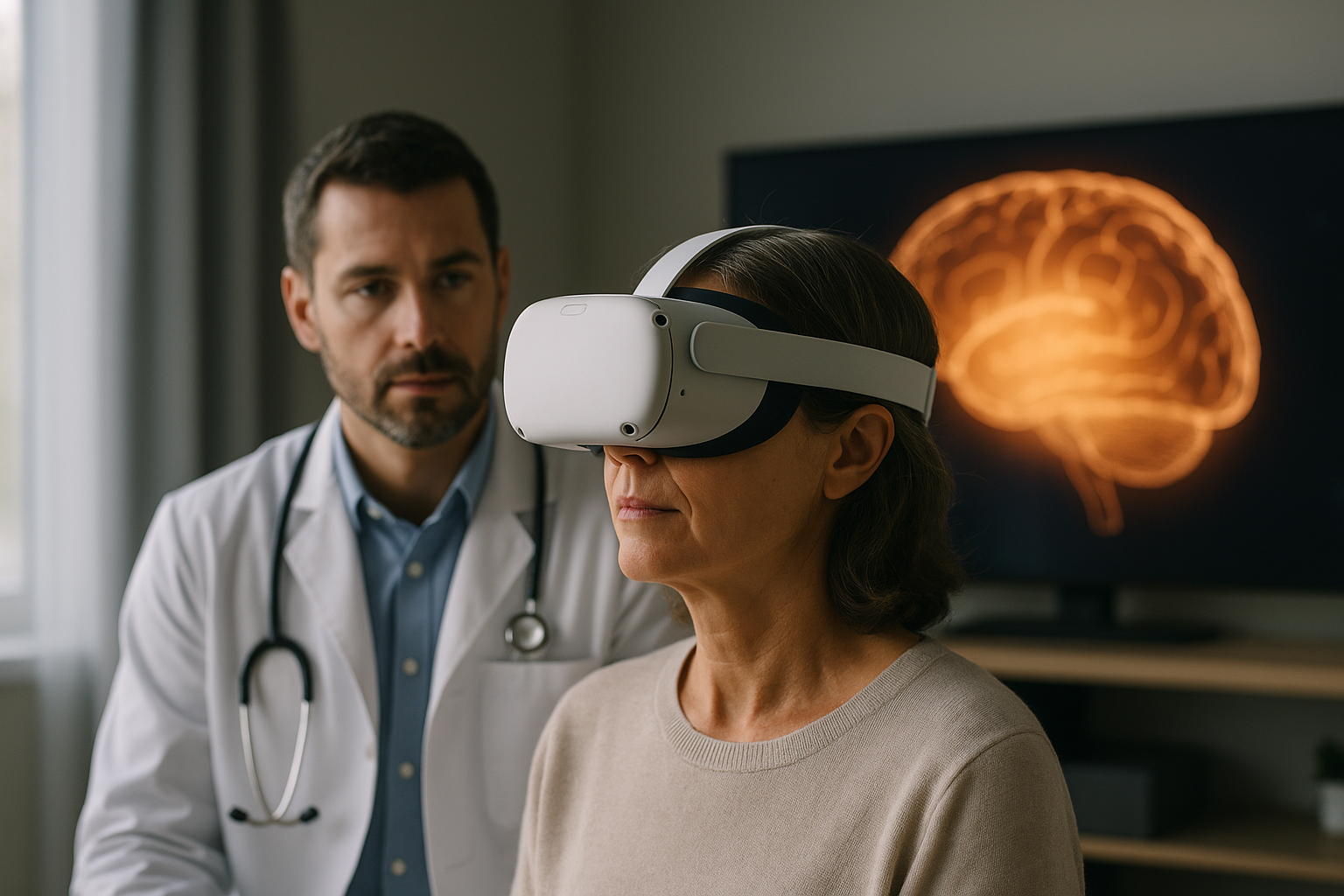Early Signs of Parkinson’s and Treatment Options in the UK
Parkinson's disease is a progressive neurological condition affecting approximately 145,000 people in the UK. The condition develops when cells in the brain that produce dopamine start to die, leading to movement difficulties and various other symptoms. Early detection is crucial for managing the disease effectively. While there is currently no cure for Parkinson's, various treatment approaches are available through the National Health Service (NHS) and private healthcare providers across the UK to help manage symptoms and improve quality of life for patients.

Recognising Early Symptoms of Parkinson’s Disease
Parkinson’s disease often begins subtly, with symptoms developing gradually over time. The three primary motor symptoms include tremor (usually starting in one hand), slowness of movement (bradykinesia), and muscle stiffness or rigidity. However, several lesser-known early signs might appear months or even years before the classic symptoms develop. These include a reduced sense of smell, constipation, sleep disturbances, and changes in handwriting that becomes smaller and more cramped (micrographia). Voice changes, such as becoming softer or more monotone, can also be early indicators. Many patients report experiencing fatigue, depression, or anxiety before motor symptoms appear. Since these non-motor symptoms can be attributed to various conditions, Parkinson’s is often not diagnosed until the more distinctive movement problems emerge.
How Parkinson’s Disease Is Diagnosed in the UK
Diagnosing Parkinson’s disease involves a comprehensive assessment process typically beginning with a GP referral to a neurologist specialising in movement disorders. The UK healthcare system follows the National Institute for Health and Care Excellence (NICE) guidelines for Parkinson’s diagnosis and management. Since there is no definitive test for Parkinson’s, diagnosis relies heavily on clinical evaluation of symptoms, medical history, and a neurological examination. Specialists may conduct tests to rule out other conditions with similar symptoms. Some patients may undergo brain imaging tests such as MRI or DaTSCAN, though these are not routine for all cases. The diagnostic process in the UK typically involves multiple appointments, with diagnosis confirmed when patients respond positively to Parkinson’s medication. GPs play a crucial role in the initial identification of potential Parkinson’s symptoms and referral to specialist services.
Exploring Treatment Options for Parkinson’s Patients in Britain
Treatment for Parkinson’s in the UK focuses primarily on managing symptoms through medication, therapy, and sometimes surgery. The main medications include levodopa (which replaces dopamine in the brain), dopamine agonists (which mimic dopamine’s effects), MAO-B inhibitors, and COMT inhibitors. These medications are typically prescribed by specialists and adjusted over time as the condition progresses. Beyond medication, physiotherapy helps maintain mobility and prevent falls, while occupational therapy assists patients in maintaining independence in daily activities. Speech and language therapy addresses communication difficulties and swallowing problems that may develop. For patients with advanced Parkinson’s who experience significant fluctuations in symptoms despite medication, deep brain stimulation (DBS) surgery may be considered. This procedure involves implanting electrodes in specific areas of the brain to help regulate abnormal impulses and is available through specialist NHS centres across the UK.
How Healthcare Providers in the UK Support Parkinson’s Care
The NHS provides comprehensive care for Parkinson’s patients through a multidisciplinary approach. Parkinson’s nurse specialists serve as key coordinators of care, offering expert advice, medication management, and emotional support. These specialists are available in most regions of the UK through NHS trusts. Regular follow-up appointments with neurologists monitor disease progression and medication effectiveness. Many NHS trusts have dedicated movement disorder clinics that bring together various specialists including neurologists, physiotherapists, occupational therapists, speech therapists, and dietitians. Community services provide support for patients in their homes, particularly as the condition advances. The UK healthcare system also works closely with organisations like Parkinson’s UK to ensure patients have access to information, support groups, and complementary services that enhance overall care and quality of life.
Advanced and Emerging Treatments Available in the UK
For patients with advanced Parkinson’s, several specialised treatments are available through NHS specialist centres. These include apomorphine infusion therapy, which delivers medication continuously via a small pump, and duodopa therapy, which bypasses the stomach by delivering levodopa directly to the intestines via a tube. Deep brain stimulation (DBS) remains one of the most effective surgical options for selected patients who meet specific criteria. The UK is also at the forefront of Parkinson’s research, with numerous clinical trials investigating new medications, gene therapies, and neuroprotective approaches. Patients interested in participating in clinical research can access opportunities through the UK Clinical Trials Gateway, Parkinson’s UK, or through referral from their neurologist. Although still experimental, stem cell therapy and gene therapy research continue to advance in UK research centres, offering hope for future treatment breakthroughs.
NHS and Private Treatment Options for Parkinson’s in the UK
The NHS provides the majority of Parkinson’s care in the UK, covering consultations, medications, therapies, and surgical interventions when clinically appropriate. However, some patients opt for private care to access certain specialists more quickly or to receive treatments not yet widely available on the NHS.
| Service | NHS Provision | Private Healthcare Option | Estimated Waiting Time NHS vs. Private |
|---|---|---|---|
| Initial Neurologist Consultation | Fully covered | £200-£350 per consultation | 12-18 weeks vs. 1-2 weeks |
| MRI Brain Scan | Fully covered | £350-£700 | 4-12 weeks vs. 1-3 days |
| DaTSCAN | Covered when indicated | £1,500-£2,500 | 6-12 weeks vs. 1-2 weeks |
| Parkinson’s Nurse Specialist | Fully covered | Limited availability (£80-£150 per hour) | Variable by region vs. on-demand |
| Deep Brain Stimulation | Covered for eligible patients | £25,000-£40,000 | 3-12 months waiting list vs. 2-6 weeks |
| Physiotherapy | Limited sessions | £40-£80 per session | 8-16 weeks vs. 1-7 days |
| Speech Therapy | Limited sessions | £60-£100 per session | 8-20 weeks vs. 1-7 days |
Prices, rates, or cost estimates mentioned in this article are based on the latest available information but may change over time. Independent research is advised before making financial decisions.
Parkinson’s disease management in the UK benefits from a robust healthcare system that combines NHS services with support from charities and, when chosen by patients, private healthcare options. The emphasis on early diagnosis and multidisciplinary care helps patients maintain quality of life throughout their journey with the condition. While current treatments focus primarily on symptom management, ongoing research offers hope for more effective therapies and potentially disease-modifying treatments in the future. For those concerned about possible symptoms, consulting with a GP is the crucial first step toward accessing the comprehensive care network available throughout Britain.
This article is for informational purposes only and should not be considered medical advice. Please consult a qualified healthcare professional for personalized guidance and treatment.




